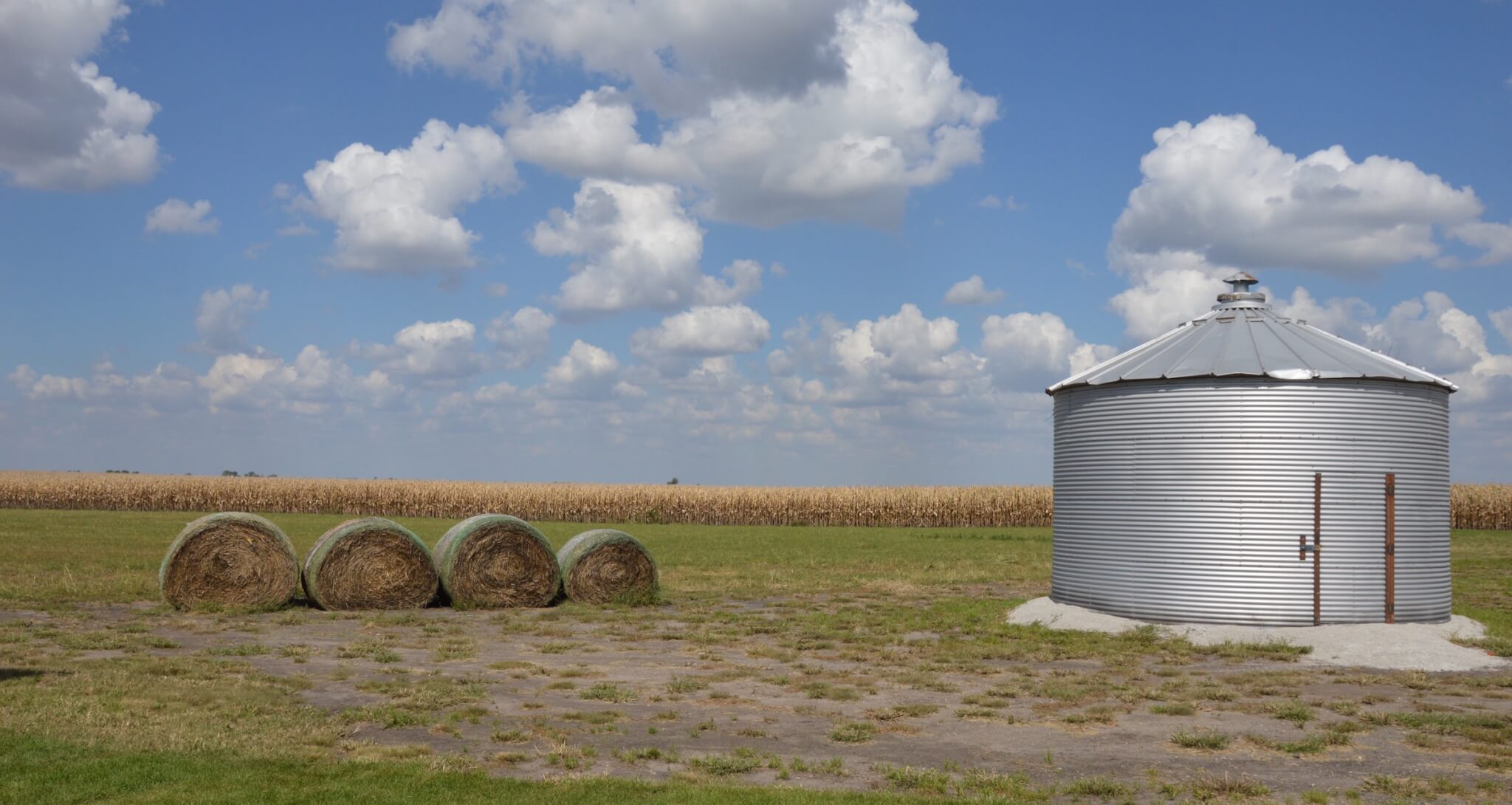
The Environment Protection Agency’s public comment period for review of its handling of the Renewable Fuel Standard is up at the end of November.
After months of broken promises, farmers and biodiesel leaders in Iowa aren’t getting their hopes up about recouping the billions of renewable fuel gallons lost.
“We have to see the results and the details before we feel like the industry is going to be okay. What’s also been made clear to us, is that this isn’t simply the EPA overstepping what [President Donald] Trump wants,” said Aaron Lehman, president of the Iowa Farmers Union. “This is Trump’s EPA, there’s no separating the two at this point. Clearly, we know where the blame lies for where we’re at to this point.”
In mid-October, the EPA released a new biofuels proposal to make adjustments to how the Renewable Fuel Standard’s annual blending requirements are calculated. A public comment period was then opened so the agency could collect nationwide feedback on its proposal.
This link will take you directly to the EPA’s comment submission page.
“The problem is, the notice they sent out leaves uncertainty by proposing to use a three-year rolling average of the SREs [small refinery exemptions], and that’s based on the recommendations from the DOE [Department of Energy], not the actual numbers approved by the EPA,” said John Heisdorffer, a soybean farmer from Keota. “I wasn’t in D.C., but it sounds like what we were told and what we’re gonna get are completely different.”
Even members of his own party have spoken out on the harm Trump’s EPA has caused farmers.
“It feels like they don’t have our back. They tell us they want to do this, but it’s like good-cop, bad-cop — Trump says it and then the EPA comes waltzing in and says you can’t do it. Well, I mean, either you mean it or you don’t mean it,” said state Rep. Dave Sieck, R-Glenwood. “We got to these ethanol plants, and they’re burning so much cash that they aren’t going to be able to keep doing this.”
[inline-ad id=”0″]
Bait-And-Switch
During the last six months, each time Trump talked with farm-state senators or received public pushback over EPA policies, he made grandiose promises on ethanol that have failed to come to fruition.
“Corn and soybean farmers are angry. We understand exactly what the EPA did. We are not fine, and we are definitely not happy. The EPA pulled a bait-and-switch with the plan President Trump promised on October 4th,” said Daryl Haack, treasurer of the Iowa Renewable Fuels Association and a corn farmer in Primghar, in a statement.
“We need those gallons restored — the actual gallons waived, not a bogus estimate. The demand destruction is real. The fix should be, too. All we are asking for is what the President promised, a plan that would restore certainty so plants can reopen and farmers can rebuild after three years of lost markets.”
Small refinery waivers have played a huge role in this outcry of disapproval since mid-summer. Since Trump took office, 85 refinery exemptions have been granted, resulting in a loss of four billion gallons of renewable fuel.
“We are not happy with what the EPA appears to have done with their newly proposed rule,” said Ron Heck, secretary of the National Biodiesel Board, in a statement. “The EPA pulled a bait-and-switch with the plan President Trump promised us all on October 4th. It’s critically important we get those gallons restored as opposed to some unreliable estimate.”
[inline-ad id=”1″]
In contradiction to Trump’s earlier statements, the EPA said last month it planned to use a three-year rolling average of exempted biofuels to calculate a new renewable fuel volume obligation [RVO] for future years. That is the central component up for debate in the public comment period.
“Any proposal that does not account for actual waived gallons under the Renewable Fuel Standard fails to restore the integrity of the law,” said Jim Greif, president of the Iowa Corn Growers Association, in a statement.
Like promises made in the past, even this piecemeal patch has been met with skepticism. One of the criticisms is that the EPA will not use the actual gallons exempted, and its three-year formulation will do little to catch up from the damage accumulated over the last three years.
“Flagrant Mishandling”
“The solution President Trump previously promised us would have estimated future exempted RFS volumes based on the average of actual volumes exempted over the past three years,” said Grant Kimberley, executive director of the Iowa Biodiesel Board, in a statement. “That is the remedy we need to steady the renewable fuels market, help plants re-open their doors, and infuse rural economies still in crisis.”
The RFS established a long-term market to create stability for commodity prices, and this deal wouldn’t be anywhere near living up to the original intent of it.
“While corn farmers appreciate the EPA’s intent to follow Department of Energy recommendations on waivers going forward, the proposed rule fails to provide the assurance needed that EPA’s practices for granting waivers will change going forward,” said Kevin Ross, president of the National Corn Growers Association. “Farmers have long been skeptical of the EPA’s administration of the RFS. This proposal doesn’t provide farmers confidence in EPA’s ability to follow through and make this right.”
[inline-ad id=”2″]
Per the mandates set forth in the RFS, the U.S. is supposed to mix 35 billion gallons of renewables fuels into the nation’s supply by 2022. But, while that number has increased slightly under the Trump Administration, producers currently are blending just over 16 billion gallons a year — well behind schedule.
“The EPA’s flagrant mishandling of small refinery exemptions has caused considerable harm to the biofuels industry,” said Rob Larew, vice president of public policy for the National Farmers Union, in a statement. “This administration promised to make up for all of those losses and more, but the plan we’ve been given is just a small fraction of what is actually needed. Farmers aren’t stupid – they understand exactly what this proposal means. It means that after all of these years of hardship, all they’ve gotten in return is a bait-and-switch.”
It Used To Be A Balancing Act
One of the more upsetting points for farmers has been the appointees Trump has made to lead the EPA, including current administrator Andrew Wheeler, a former lobbyist for the coal industry.
“It’s a huge barrier. Other administrations have had ties to the fossil fuel industry, and it’s been a balancing act. But, we’ve seen that there’s been a clear commitment to ethanol that moved the industry forward,” Lehman said. “That balance is gone now. We used to expect that there was going to be tension between the interests, but this doesn’t feel like that at all, it feels completely out of balance.”
This relationship has indeed led to a lot of tension. The EPA has pushed back on, and effectively undone, every promise Trump has made on ethanol since June, with the exception of E15.
“It is disappointing. All of this was worked out and everybody seemed content after meeting with the administration, and then when they came out with the way they were going to do it, it was like, ‘wait a minute,’” Heisdorffer explained. “From everything I had heard, it seemingly just changed somewhere along the line to something other than what we had all agreed on.”
When he was running for president, Trump promised Iowa farmers he would expand the renewable fuels market.
“When we got promises that this administration was going to be the most pro-ethanol administration ever, we knew that there were going to be major issues,” Lehman explained. “But a lot of farmers took that promise to heart, and they feel really blindsided by what’s happened with this administration.”
Outlook For Ethanol
“U.S. ethanol consumption declined last year for the first time in 22 years. EPA should not be overseeing the decline of ethanol, it should be working toward its development by expanding the use of higher level blends, including E-30,” Larew said. “They made this mess, and now we’re asking them to clean it up.”
Despite a near-impossible route to fully recover the lost gallons, there are still some policy fixes that farmers and biofuels leaders hope could come out of the review period.
“If we got the biodiesel tax-incentive back, and we got the RFS back to where it should be — which we’re literally just asking for what was promised, we’re not asking for a lot more. If we had those things, we could operate in the black and make enough to help our investors get some returns anyway,” Heisdorffer said. “I’m not saying it’s got to be anything humungous, but we’ve worked through some of the problems and played down some plants, it just needs to go back to at least what was originally promised.”
Despite some potential for a small gain at the end of the year, six months of damage will be tough to come back from; people aren’t holding their breath for the next time the president makes a promise or the EPA makes an announcement.
“We’ve been up and down this route a lot with promises made, promises broken, people come together to discuss, more promises made and then more promises broken,” Lehman said. “So, it’s a bad cycle and people are very, very skeptical of what’s going to happen next.”
By Josh Cook
Posted 11/18/19
Politics

6 terrifying things that could happen if the Comstock Act is used to target abortion
Does 1873 sound like a really, really long time ago? Well, that’s because it is—but if Republicans and far-right anti-abortion activists have their...

Iowa parents explain how ‘fetal personhood’ would harm IVF
Lyndi Buckingham-Schutt and her husband Andy Schutt, both Des Moines residents, always knew they wanted to have children. When Lyndi was 30, they...
Local News

No more Kum & Go? New owner Maverik of Utah retiring famous brand
Will Kum & Go have come and gone by next year? One new report claims that's the plan by the store's new owners. The Iowa-based convenience store...

Here’s a recap of the biggest headlines Iowa celebs made In 2023
For these famous Iowans, 2023 was a year of controversy, career highlights, and full-circle moments. Here’s how 2023 went for the following Iowans:...




